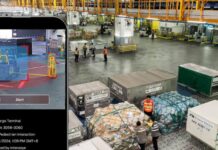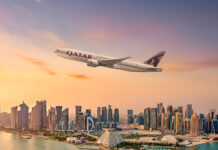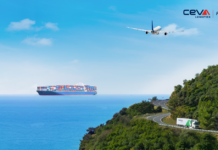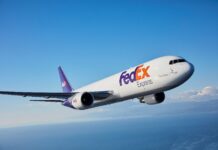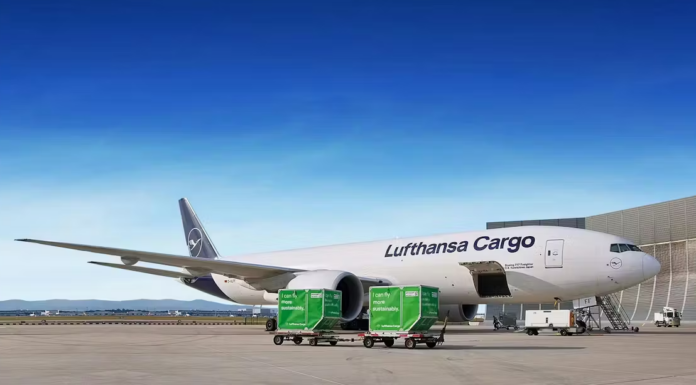
Lufthansa Cargo and Best Services International Freight (BSI) have agreed to reduce the Chinese logistics company’s CO2 emissions associated with airfreight. BSI will invest in a total of around 137,000 litres of Sustainable Aviation Fuel (SAF) at Lufthansa Cargo to offset the CO2 emissions caused by its flights. The two companies agreed on June 26 during this year’s “transport logistic China” logistics trade fair in Shanghai.
“Best Services International Freight is our first customer in China to opt for the use of more than 100 tons of SAF,” said J. Florian Pfaff, Head of Region Asia Pacific. “Examples like this help reduce our CO2 emissions and promote the use of SAF worldwide. Every customer who takes advantage of this opportunity is making a significant contribution to the decarbonization of logistics. The interest shows us that there is great potential for this, especially in Asia.”
“The cooperation with Lufthansa Cargo strengthens our partnership. As China’s leading air cargo logistics company and an industry leader in the digitalization process, we combine progress with responsibility,” said Dr. Wilson Wong, Group CEO of BSI. “With limited SAF production globally, agreements like this are of paramount importance.”
More climate-friendly flights with SAF
SAF is a critical technology key to more sustainable flying and essential to the energy transition in aviation. Over its entire lifecycle (production, delivery, combustion in the engine), biogenic SAF has a CO2 footprint that is approximately 80 per cent lower than that of conventional kerosene. SAF can be used in regular flight operations without any infrastructure adjustments and is currently produced mainly from biogenic residues. The SAF used by Lufthansa Cargo is produced using the HEFA process (Hydroprocessed Esters & Fatty Acids), for example, from used cooking oils. As only forestry, agricultural or catering waste is used, there is no conflict with food production. Lufthansa Cargo offers SAF via the Lufthansa Group from the world’s leading manufacturers. Since September 2021, all Lufthansa Cargo customers have been able to have their freight transported more sustainably by opting for the “Sustainable Choice” add-on service.
The Lufthansa Group and its companies are actively involved in the research and development of the next generation of sustainable aviation fuels. In numerous projects worldwide, the Lufthansa Group is currently working with partners from science and industry on more SAF – from start-ups to established energy companies.
Lufthansa Cargo is pursuing a clear strategy for a more sustainable future and, together with the Lufthansa Group, has set itself ambitious climate protection targets: The Lufthansa Group aims to achieve a neutral CO2 balance by 2050 and to halve net CO2 emissions by 2030 compared to 2019 through reduction and compensation measures. In addition to SAF, more sustainable aviation also requires major efforts to build a modern fleet and improve efficiency in flight operations. Only in this combination can the change be successful in the long term.
Background on the use of SAF
As a drop-in fuel, SAF is compatible with fossil kerosene and can be easily blended with it. SAF can be used without modification of the aircraft and with the existing infrastructure. SAF is blended with fossil fuel prior to delivery to the airport. The maximum blending ratio of SAF with fossil aviation fuel currently allowed by the fuel specification is 50 per cent.
อัพเดตข่าวสารและบทความที่น่าสนใจในอุตสาหกรรมโลจิสติกส์ก่อนใคร ผ่าน Line Official Account @Airfreight Logistics เพียงเพิ่มเราเป็นเพื่อน @Airfreight Logistics หรือคลิกที่นี่

